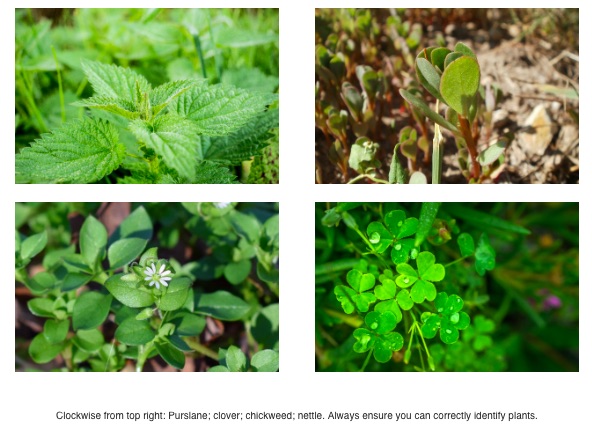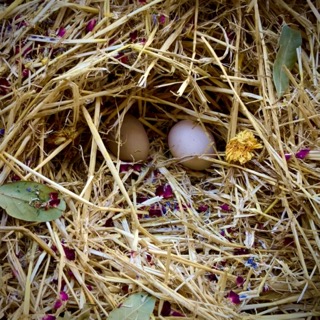Springtime Chicken Keeping
Give Your Hens a Spring in Their Step
Get ready for the laying season. As the weather warms up, so will the chicken coop. With longer days, our lovely hens have started laying more productively and some are showing signs of broodiness.
But chickens aren’t the only things that start living it up in the springtime. Warmer weather is also great for parasites – pests that were dormant over winter will take advantage of the rising temperatures to start breeding.
So what can you do to keep spring chickens clucking? Here are 5 essential springtime chicken keeping jobs.
1. Boost your chickens' diet
Chickens naturally become a little depleted in essential vitamins and minerals over the winter months, as their diet is more limited. As the days lengthen, egg production increases and your hens need extra vitamins, minerals and protein.
Giving your chickens' diet an extra boost in spring time is a good idea to help kick start egg production and keep your hens healthy!
Spring Greens
Chickens naturally go nuts for the first lush spring greens.
Let your flock roam, or pick some greens to help your girls get their fill of the vitamins and minerals they have been missing over the winter.
Weeds are some of the most nutritious plants, so kill two birds with one stone (so to speak) and pick your hens some dandelion (true dandelion, not flatweed), thistles (use gloves!), chickweed (of course), purslane, clovers, nettles (gloves again) or plantain. Tie bunches of weeds with string and hang them in the coop as a green piñata for the girls.

Protein
Now that your hens are laying again, they will also need extra protein. Insects are one of the best protein-rich treats for chickens, but there are plenty of others too! Click here for 10 protein-rich treats for chickens.
Shell Grit
Calcium is also essential for egg production and can become depleted over winter, as vitamin D is key to calcium absorption and there is less sunlight in winter.
Make sure your chickens have plenty of clean shell grit to boost their calcium stores.
2. Spring clean the coop
Make sure your chickens aren’t going to be assailed by mites, lice and other parasites as the weather gets warmer.
Give the chicken coop a good spring clean. Use an insecticide spray or a natural alternative like Diatomaceous Earth (DE) to kill any insects or eggs that are hiding in the coop, and completely replace bedding. Spring is also a good time to disinfect the chicken coop, to prevent the spread of any chicken diseases.

Keeping bedding in the nesting boxes fresh will help encourage your chickens to lay there, and not in the garden, which is common in spring when hens are broody and looking for a nest.
3. Treat your flock for parasites
Parasites like lice, mites and worms become more active in the spring. Prevention is always better than a cure, so treat your chickens for worms, lice and mites before summer.
Having a clean coop is also important. Adding Nesting Herbs and Diatomaceous Earth to fresh bedding and nesting boxes can also help deter pests and parasites.
4. Act early if you have broody hens
In our chicken coop, springtime means broody hens. If you are planning to raise chicks and don't have an incubator, a broody hen is handy. But if you aren't going to expand your flock, broodies can be a pain. They hog the nesting boxes, breaking eggs and forcing other hens to lay in inconvenient spots like the garden. Plus, broodiness spreads in the flock, decreasing egg production, and broody hens also lose condition as they stop taking care of themselves, rarely leaving the nest to eat, drink or dust bathe.
Our advice, don't ignore broody hens. Act immediately!
If you are planning to raise chicks, set your eggs within a few days of the hen becoming broody to ensure she will stay on the nest until the chicks hatch.
And if you aren't planning to set eggs, take steps to cure your broody hen. This will stop her losing condition, as well as boosting egg production in the flock.
5. Keep an eye on your Roo
Rooster hormones naturally increase in springtime, leading to heightened aggression even in friendly Roos. Being aware of your rooster and responsive to his behaviour when you are in the coop can help prevent misunderstandings!
Happy spring chicken keeping!
Rachael at Dine a Chook






